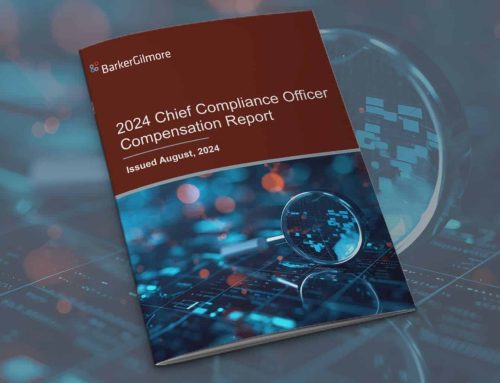Why are employees more willing to bring misdeeds to light at some companies and more likely to stay silent at others? The difference often lies not in written policies, but embedded in the institutional DNA.
A “speak-up” culture isn’t just a warm and fuzzy management phrase. It’s essential to managing risk, both within the workplace and from regulators. It can even save lives.
GM CEO Mary Barra recently addressed this following the recall of more than 6 million cars found to have faulty ignition switches.
An internal investigation found employees repeatedly failed to call attention to serious problems when they suspected something was wrong. It wasn’t a deliberate cover-up; just the way GM had done business, with “no demonstrated sense of urgency” and “nobody (raising) the problem to the highest levels of the company,” Barra is quoted saying in a recent Harvard Business Review article.
Few executives would disagree that a more open, transparent workplace culture is a better place to do business. So how do you achieve it?
Start With The Right Tone at the Top
Compliance is everyone’s responsibility, starting at the highest level of your organization. The executives set the tone: If they demonstrate an attitude of achieving profit at all costs, the managers who report to them aren’t going to take any of your initiatives seriously. They’ll just check the boxes they’re required to check so they can move on to what they perceive as the more important tasks.
Once your executives have demonstrated a commitment to compliance and ethics, communicate that to your employees in the simplest, most direct terms.
Employees need to not only understand your objectives; they need to know they’ll be taken seriously. Make yourself and your staff visible by taking every opportunity to walk the production floor and meet with local managers and employees as you travel.
Give Employees Multiple Outlets to Express Concerns
Employees need to know they can confide in a direct manager, human resources director, member of the legal team and confidential hotline. Don’t just tell them about this on their first day and expect them to remember it. Reinforce it in newsletters, posters and email communications.
Consider hosting regular town hall meetings where employees are encouraged to voice their concerns and ask questions, or offer an “employee concerns” box where they can leave comments anonymously.
At Avon Products, Vice President of Legal and Compliance Richard Davies gives each of the company’s 36,000 employees a wallet card promoting the company’s ethics hotline, but the company also conducts annual ethics and compliance evaluations. This allows employees to express concerns and helps managers spot potential problems before they snowball into more serious issues.
Remind Them Of Your Anti-Retaliation Policy
One of the most common reasons employees hesitate to speak out is because they fear they’ll be punished for it. A recent survey of federal employees found nearly 20 percent were afraid to report wrongdoing.
Along with anti-corruption laws, the expansion of whistleblower protections into other areas of the law will continue to shape compliance going forward. The Dodd-Frank Whistleblower Program has expanded, granting greater protections and even cash incentives to employees who disclose potentially criminal anti-trust violations. Employees who report any action that results in more than $1 million in sanctions are entitled to an award valued at 10-30 percent of the total amount collected.
In the past two years, the SEC has received more than 6,000 whistleblower complaints and made six monetary awards worth a total of $15 million to employees who reported fraudulent activity that led to sanctions, according to Harvard Law Review.
With this in mind, businesses need to be mindful of how they can encourage employees to continue reporting issues to the company ethics hotline first, rather than going directly to the SEC. Continue to remind them that they can report concerns anonymously, without fear of retaliation.
Demonstrate You’re Serious By Taking Action
Compliance officers are well aware of anti-retaliation laws, including recent expansions of whistleblower protections, but other company leaders don’t always go far enough to enforce them. One manager with a negative attitude toward employees who raise concerns can create a toxic environment, undermining even the best policies in place. All too often, the entire company is aware of the naysayers who interfere with the culture you’re trying to create, but no one addresses the problem.
Employees need to be assured their concerns are not only being heard, but properly addressed. They need to see there are consequences when employees cover up wrongdoing or withhold essential information.
Companies have made great strides in encouraging employees to report wrongdoing, but many still have a long way to go as they shift to building a culture of compliance. That often starts with hiring a chief compliance officer who sets the right tone at the top.
To learn more about what four global companies have done to create a speak-up culture as they’re building a compliance department, download our guide, “How to Build a World-Class Compliance Department.”
Connect with a legal recruiting advisor
* indicates required fields







